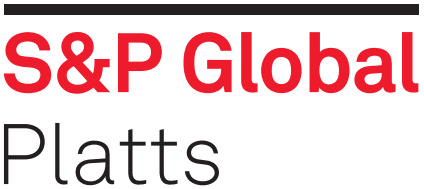
Italian industry sources this week expressed concern that ArcelorMittal could withdraw from its Italian asset, the former Ilva works at Taranto, which is at its lowest-ever production rate due to COVID-19 related restrictions and a European steel market slump.
ArcelorMittal has an option to withdraw from the troubled works in November. If it does so this could threaten the survival of the Taranto plant, in capacity terms the largest flat carbon steelmaker in the European Union.
“The situation around Ilva is very confused at the moment. It is very unclear what is happening as the company is working at such low rate. It is true that the market is very weak, due to the COVID-19 outbreak, but it seems more a political move to keep the plant at such low production level. Either Mittal is trying to have more help from the Italian government as a lot of mills need some help due to the Coronavirus outbreak or it just wants to leave,” a senior industry source commented.
AM Italia is operating only two of four blast furnaces (numbers 1 and 4) and with most of its cold end lines temporarily shut down, union sources told S&P Global Platts on Thursday. The Taranto site in southern Italy is producing around 7,500 mt/day of crude steel, several sources said.
According to union sources, ArcelorMittal’s Genoa and Novi Liguri sites, in the north of Italy, are also working below capacity. In Genoa the company has two hot dip galvanizing (HDG) lines with a combined capacity of 900,000 mt of galvanized products a year. The Genoa site was expected to reopen one of its HDG lines next week but it will not re-open, and the other was temporarily shut down this week, the union sources said. In Genoa the company is producing tinplate only, at a rate of 130,000 mt/year tinplate on a 200,000 mt/year line. In Novi Liguri the company has two HDG with a combined capacity of 900,000 mt/year and neither are working, according to the union sources.
Unions in the north of Italy have started strike action as the number of temporary layoffs at the company’s north Italian site has reached 800 workers out of 1,000, while in Taranto unions are planning a strike starting Monday as the number of temporary layoffs is now at 6,000 workers, out of a total of 8,000.
Lease-and-purchase accord
ArcelorMittal agreed to buy Ilva, Europe’s biggest single-site steel firm, in 2018 under a lease-and-purchase agreement for Eur1.8 billion ($2 billion) and to invest another Eur2.4 billion in cleaning up and modernizing the plant dogged by environmental issues. Following legal issues with the Italian state, ArcelorMittal in early March this year reached an accord with the Italian authorities over the future of the former Ilva group, amending the existing lease and purchase agreement. The agreement left ArcelorMittal with the right to withdraw from its Ilva purchase by November 2020, subject to the payment of a fine of Eur500 million. The lease-and -purchase agreement may extend until May 2022.
“Mittal, when he bought Ilva, saw an opportunity to make his company the strongest in south-eastern Europe but then so many problems started with the Italian government. Now with COVID-19 and demand unlikely to bounce back any time soon in Europe I think he’s really considering to take advantage of the latest agreement and to withdraw from Italy,” a senior source close to the mill commented.
Italy is the EU’s second biggest steelmaking nation with 23 million mt crude steel production last year and ArcelorMittal Italia is the nation’s largest producer with an installed capacity of around 11 million mt crude steel a year. Due to the coronavirus outbreak Italian mills temporarily shut down for around a month with the exception of ArcelorMittal Italia and Arvedi, the second largest Italian steel plant. ArcelorMittal Italia was kept operative because it uses the blast furnace production route, which is harder to shut down temporarily.
Currently all Italian mills are operative and working at around 50% of their capacity. European steel industry association Eurofer said in its latest report that it does not expect market conditions to improve before the fourth quarter of 2020 or early 2021, although much will depend on the length of the industrial lockdown in steel-using sectors. ArcelorMittal declined to comment when contacted by Platts Thursday.
— Annalisa Villa




